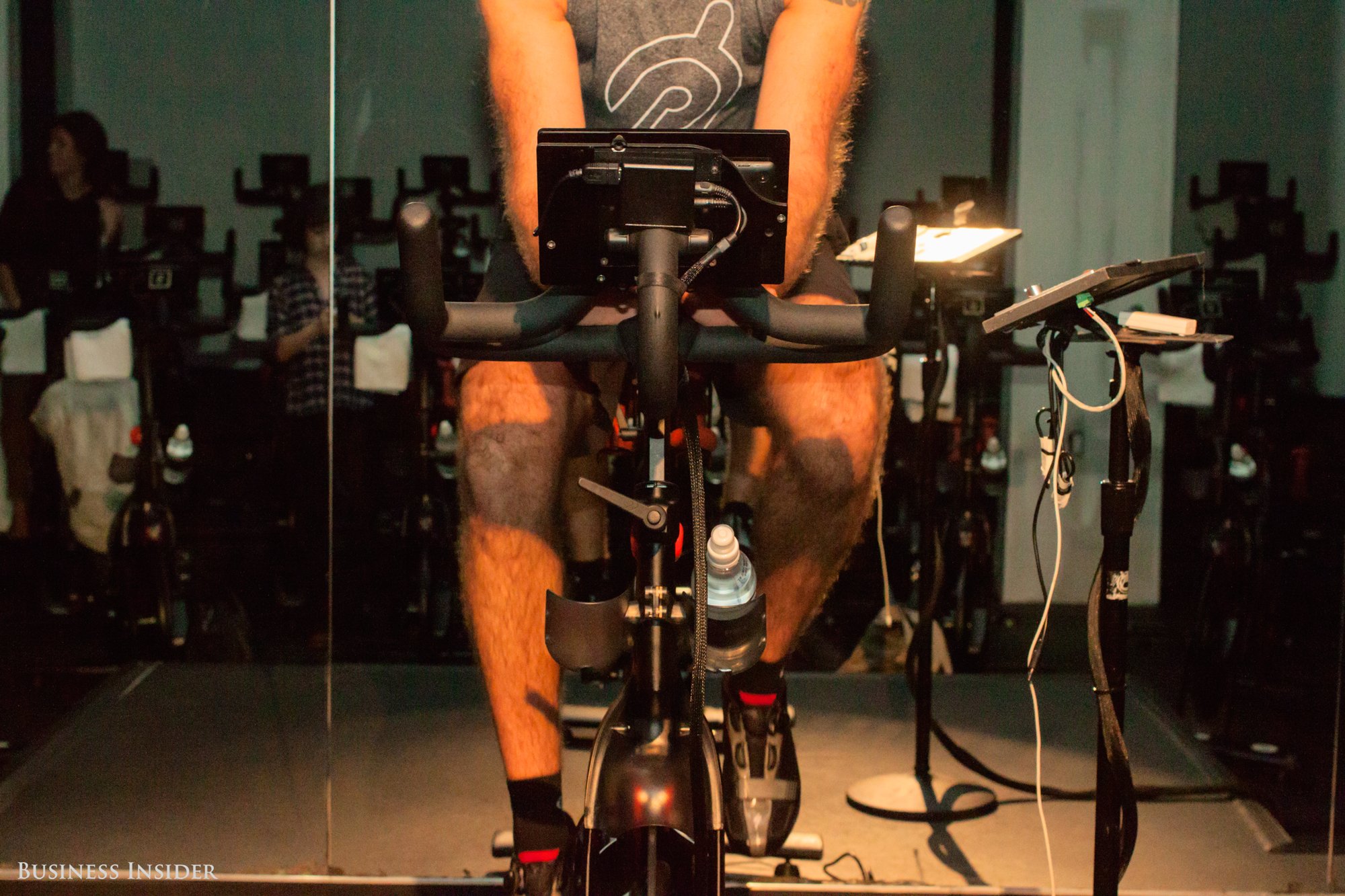 Hollis Johnson
Hollis Johnson
- Peloton, the indoor-fitness company, has raised $325 million from investors including Wellington Management, Fidelity Investments, Kleiner Perkins, and Comcast NBCUniversal.
- The deal, likely to be the last financing round before the company goes public, was put together by a number of cycling enthusiasts.
- The company is on a steep-growth curve: It has tripled annual revenue, to $170 million, in just a year, and has 100,000 paying subscribers.
Noah Wintroub picked up the phone and cold-called Peloton Cycle founder and CEO John Foley.
A vice-chairman at JPMorgan, Wintroub had ordered a Peloton Cycle indoor bike. Convinced that Foley had built a great product, he wanted to get to know the company better.
“If you’ve used the product, you get it, innately,” Wintroub told Business Insider. “It’s like ‘Oh my god, these guys are the Apple of fitness.'”
Fast forward 18 months or so, and Peloton Cycle closed a $325 million financing round, with the likes of Wellington Management, Fidelity Investments, Kleiner Perkins, and Comcast NBCUniversal pouring money into the company. JPMorgan was sole placement agent for the offering. Wintroub worked on the deal with another cycling enthusiast, Eric Stein, who is head of North American investment banking at JPMorgan.
The Series E financing round valued the company at around $1.25 billion, making it a unicorn.
Peloton Cycle is built around indoor cycling from the home. It has 22 showrooms around the country, and two studios — a flagship in Manhattan and a studio in Chicago. Customers can choose from a variety of live classes and archived classes. The bike costs $1,995, and unlimited classes cost $39 a month. Some Business Insider employees have tried the bike.
The company is vertically integrated, making its own hardware, producing a tablet computer and the bike it sits on, and software, with 75 software engineers in New York City. It produces 12 hours of live television content a day, and sells through its own retail stores. It also delivers its own bikes in some cities.
“Peloton is a cultural phenomenon and has redefined what it means to build a connected experience disrupting multiple industries simultaneously: in home fitness, boutique class fitness and connected media devices,” said Jon Callaghan, cofounder of True Ventures, another investor in the firm.
The new funds will go towards upping the number of retail stores it has, toward 40 by the end of the year, according to Foley, and extending in-house delivery to 10 markets, up from three right now. It also plans to sign a lease on a 30,000 square foot space in Midtown or Downtown Manhattan in the next few months, and to turn it into a fitness facility.
“We believe Peloton is the leader in a new business that has significant potential – Physical Interactive Media,” Mary Meeker, a partner at Kleiner Perkins, said in a statement.
The $325 million fundraiser was bigger than expected and included the sale of both primary equity, or new shares, and existing shares. Foley said he didn’t expect there to be another placement, but that that didn’t mean an initial public offering was on the immediate horizon.
“We’re very well capitalized to have options over the next several quarters,” he told Business Insider.
More from Matt Turner:
NOW WATCH: SCOTT GALLOWAY: I believe every time Amazon reports a profit a manager gets yelled at













